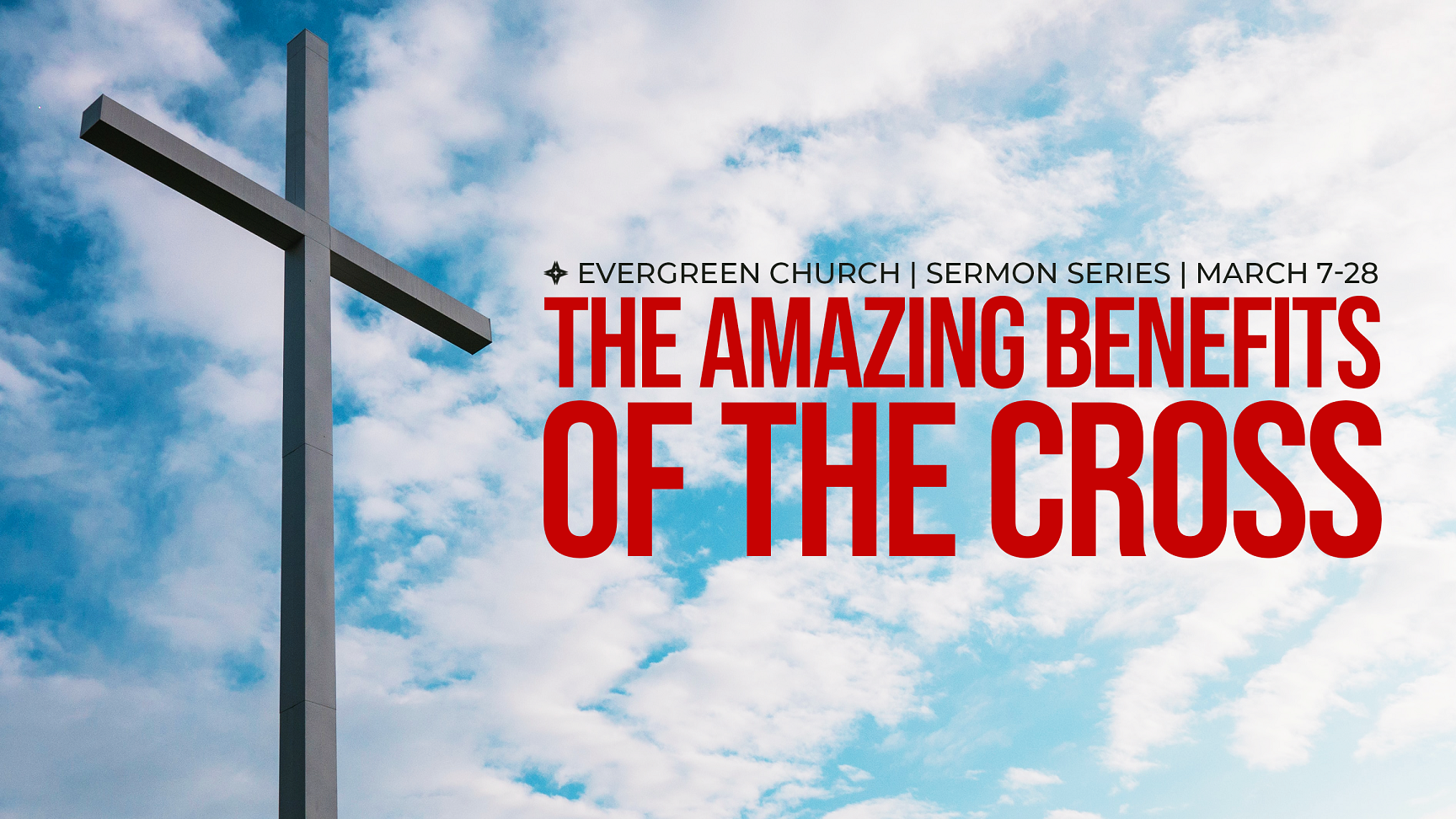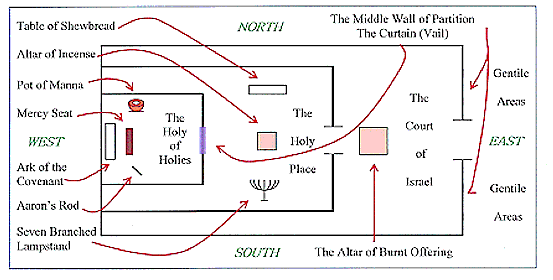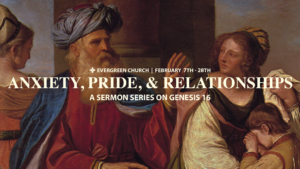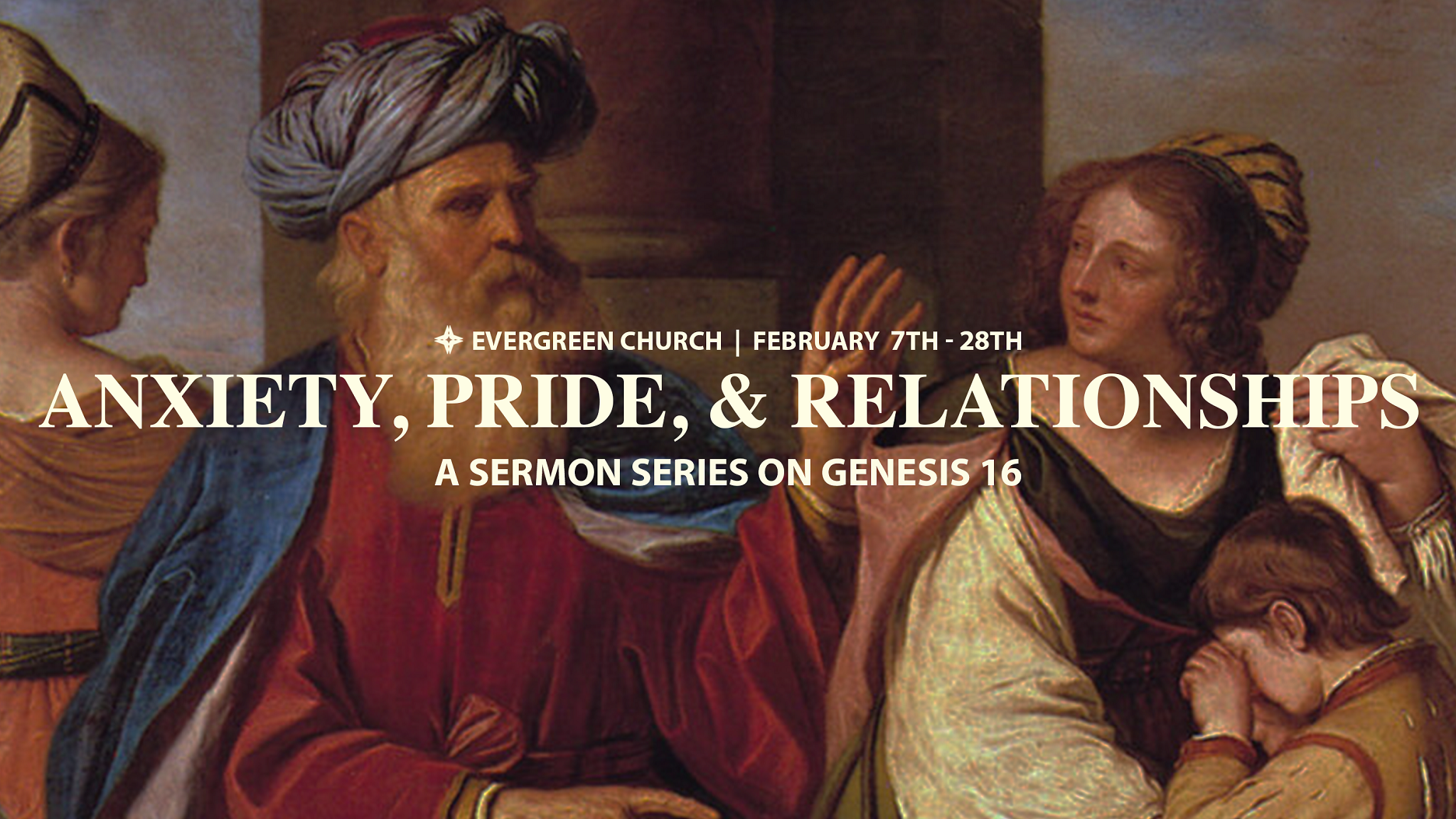
[Listen to an audio version here
What is my role in the world? Is it significant? Do I even matter at all? There is something about us that would make us think that we matter. We can think and see the world. We can survey the whole universe and consider it. Our own conscience judges our actions and tells us whether we have done right or wrong. We can connect with other human beings. We can think beyond the world and consider God. There is much that would make us say, we are significant.
On the other hand, there is much that would make us think that we are insignificant. We are a tiny speck in a tiny speck in the universe. We are one of billions of people on the earth at this time, and we are one of billions who have been born and died. It’s also easy to look at the little things we do like cooking, cleaning, going to work, or even doing a vacation and say, does this stuff matter at all?
Think of Josh Dobbs, the former UT quarterback who now plays for the Pittsburgh Steelers. It would seem that Ben Roethlisberger matters because he is the starting quarterback. He has won his team Super Bowl rings. But what about Josh Dobbs? Now, if you were to play Josh Dobbs in virtually any sport, you would probably say, this is the most amazing athlete I have ever seen. Yet, on the Pittsburgh Steelers, he is basically a practice quarterback. And most of us don’t get anywhere near that level of athletic glory! Do we matter at all?
One of the amazing benefits of the cross is that it tells us that we matter and matter more than we could possibly imagine. That’s what our passage teaches us. The cross tells us of our amazing identity and our amazing destiny. Let’s consider this passage more carefully.
Christ Sent into the World
Galatians 4:4 says, “But when the set time had fully come, God sent his Son, born of a woman, born under the law.” What we read here is that Christ was sent into the world. This means that Jesus existed before He came into the world. For all of us, we were conceived, and that’s when we started to exist. Jesus existed before He was even conceived.
Jesus Himself was conscious of having been sent into the world. Before He died on the cross, Jesus prayed, “And now, Father, glorify me in your presence with the glory I had with you before the world began” (John 17:5). He existed in eternal glory with the Father before He was ever born.
That same person who existed from all eternity became a human being in the fullness of time. He took on Himself a human nature without giving up His divine nature. That’s why the ancient Council of Chalcedon affirmed that Jesus is one person in two natures without mixture, confusion, division, or separation. That accurately sums up what we have in our text.
The next thing you will notice about Jesus’ entrance into the world was that it came at the right time. God knows how to tell time and in the right time or the set time or in the fullness of time, He sent His Son into the world.
How was it the right time? Religions throughout the world were looking for someone to bring salvation to the world. Many saw Caesar Augustus as the one in whom their hopes would be fulfilled. They were looking for a savior.
The Roman Empire controlled much of the world. They had brought a relative peace, order, and justice to the world that allowed for rapid and safe communication of ideas all over the world in a common language. A few centuries before Christ’s birth, this would not have been the case.
When it comes to the Jews, who were especially looking for a Messiah, their own hopes seem to be dashed. They had been in exile and returned. They had gained independence under the Maccabees but were now “slaves,” as they might put it, under the Roman Empire. Their hopes were exhausted. It was the right time for a savior.
What Christ Did in the World
So, what did the Son do when He was in the world? Our passage tells us. First, He was born. He became a real human being, as we noted above. He was conceived in the womb of the Virgin Mary and born of her yet without sin. He became a real human being without giving up His divine nature.
Next, we read that he was born under the law. “But when the set time had fully come, God sent his Son, born of a woman, born under the law.” Thus, His calling and vocation had a reference to the law.
We might not think God’s law is that important, but God doesn’t view it that way. He created this world as its Sovereign Lord and Judge. He gave a law that was to be obeyed. His holiness demands conformity with this law, and His justice will defend it. This is God as we have Him revealed in the prophets. For example, the prophet Habakkuk says, “You, Lord, have appointed them to execute judgment; you, my Rock, have ordained them to punish. Your eyes are too pure to look on evil; you cannot tolerate wrongdoing” (1:13a–14b). He says elsewhere, “The Lord is in his holy temple; let all the earth be silent before him” (Hab. 2:20). He is the Lord to whom we must give account.
The amazing thing here is that Jesus became a human who had to give account to God. He who was God was also under God. He became a subject rather than the ruler. The Law-giver took his place among those who were called to be servants. He assumed the form of a servant obeying the law.
And what did the law require? If you go back to Galatians 3:10 and 12, you have the answer. The Holy Spirit teaches us, “The law is not based on faith; on the contrary, it says, ‘The person who does these things will live by them’” (Gal. 3:12). In other words, the law doesn’t simply says, “believe, and you will have life.” It says, “Do what it says, and you will have life.” Well, how much do we have to do? In Gal. 3:10 we read, “Cursed is everyone who does not continue to do everything written in the Book of the Law.” The law cannot exempt anyone. It can’t say, “it’s OK that you broke the law.” It just tells us, “you’ve broken the law and now must suffer the penalty.”
So, when Christ comes, He obligates Himself to obey the law and suffer its penalty. But here’s the amazing thing. He does this not for Himself but for us. “God sent his Son, born of a woman, born under the law, to redeem those under the law, that we might receive adoption to sonship.” He is our substitute and representative before God. He is born of a woman and born under the law not for His own sake but for our sakes.
Our text indicates that He redeemed those under the law. The word “redemption” means payment. What did He pay? He paid the debt of those who owed obedience to God and the suffering that resulted from not obeying the law.
Here’s what Paul says in Galatians 3:13, “Christ redeemed us from the curse of the law by becoming a curse for us, for it is written: ‘Cursed is everyone who is hung on a pole or tree’” (Gal. 3:12). Christ redeemed us by taking the curse that was due to us so that we would not have to face it. That’s the amazing benefit of the cross. We are all under the curse because of our sin, but anyone who believes in Jesus and wants Him as their Savior can have the curse completely removed.
But there’s much more. It is not as if Christ simply removes the curse and puts us back at square one. He not only removes the curse. He secures the blessing that God promised long ago would come to all nations through a descendant of Abraham. “He redeemed us in order that the blessing given to Abraham might come to the Gentiles through Christ Jesus, so that by faith we might receive the promise of the Spirit” (Gal. 3:14).
The Benefit We Get from Christ in the World
So, we have the curse due to us removed and now blessings are due instead of a curse. But there’s more. Christ merited for us not only a life of blessing. He merited for us the adoption to sonship. We actually become adopted children of God through what Christ did. “God sent his Son, born of a woman, born under the law, to redeem those under the law, that we might receive adoption to sonship” (Gal. 4:4–5).
Here’s what that includes. It means that we are legally adopted and called sons and daughters of God. It means that we receive the work of the Holy Spirit of adoption. “Because you are his sons, God sent the Spirit of his Son into our hearts, the Spirit who calls out, ‘Abba, Father’” (Gal. 4:6). We are not simply legally adopted, we have God’s Spirit who changes our hearts and enables us to look at God as a Father to us. It means that we are heirs of the entire universe. “So you are no longer a slave, but God’s child; and since you are his child, God has made you also an heir” (Gal. 4:7). The wages of sin is death, but the gift of God is eternal life through Jesus Christ our Lord. We get an eternal inheritance in Christ!
Now, think of this. It is a truly amazing thing. If we who were criminals in God’s court and worthy of eternal punishment were pardoned and assumed the place of the lowest servants, we would be eternally grateful. How much more the fact that we are actually taken to the highest position and become the sons and daughters of God! That is beyond belief.
In the classic movie, Ben-Hur, Judah Ben-Hur is a wealthy Jewish merchant. He refuses to turn on his own people, and so he is framed by a powerful friend and sold as a slave. He ends up as a galley-slave where is forced to work at heavy oars day and night for three years to move a naval ship of the Roman Empire. That ship ends up being attacked and sunk. Judah ends up saving Quintus Arrius, the admiral on the ship, from death, and they return to Rome. Arrius is grateful for what Judah has done, and he eventually adopts him as a son.
Now here’s the amazing thing. We can see how out of gratitude for Judah saving him, he might adopt him as a son. But God saves us from death and then adopts us as His children! He does it all! He not only saves us, He saves us through the terrible death of a cross. He undergoes the severe punishment in body and soul that was due to us so that we might come to be adopted as children! That is an astonishing thing!
The Apostle John was captivated by this amazing benefit of the cross. He wrote, “See what great love the Father has lavished on us, that we should be called children of God! And that is what we are!” (1 John 3:1). What an amazing thing that the God who created the universe and knows all the stars by name who has myriads upon myriads of angels at His service wants to call us His sons and daughters. If we could really get that, it would be the most astonishing and amazing thing we ever heard!
The philosopher Epictetus contemplated the fact that we are created by God. He said, “If only one could be convinced of this truth, that we’re all first and foremost children of God . . . I think one would never harbour any mean or ignoble thought about oneself” (Discourses, 1.3). No mean or low thoughts about ourselves! If this is true for us as created beings, how much more so is it true for those who have been redeemed and adopted into God’s family and are heirs of His eternal kingdom! God loves us more than we can imagine.
Conclusion
How do we know we matter and are significant in this world? God loved us so much He would send His own Son to die on the cross rather than see us perish. He also loved us so much that He adopts us as His children and heirs of the entire universe forever. That is our identity, and that is our destiny, all because of what Jesus did for us in the agonizing death on the cross. That is an amazing benefit indeed. Thanks be to God for His indescribable gift!
What is my role in the world? Is it significant? Do I even matter at all? There is something about us that would make us think that we matter. We can think and see the world. We can survey the whole universe and consider it. Our own conscience judges our actions and tells us whether we have done right or wrong. We can connect with other human beings. We can think beyond the world and consider God. There is much that would make us say, we are significant.
On the other hand, there is much that would make us think that we are insignificant. We are a tiny speck in a tiny speck in the universe. We are one of billions of people on the earth at this time, and we are one of billions who have been born and died. It’s also easy to look at the little things we do like cooking, cleaning, going to work, or even doing a vacation and say, does this stuff matter at all?
Think of Josh Dobbs, the former UT quarterback who now plays for the Pittsburgh Steelers. It would seem that Ben Roethlisberger matters because he is the starting quarterback. He has won his team Super Bowl rings. But what about Josh Dobbs? Now, if you were to play Josh Dobbs in virtually any sport, you would probably say, this is the most amazing athlete I have ever seen. Yet, on the Pittsburgh Steelers, he is basically a practice quarterback. And most of us don’t get anywhere near that level of athletic glory! Do we matter at all?
One of the amazing benefits of the cross is that it tells us that we matter and matter more than we could possibly imagine. That’s what our passage teaches us. The cross tells us of our amazing identity and our amazing destiny. Let’s consider this passage more carefully.
Christ Sent into the World
Galatians 4:4 says, “But when the set time had fully come, God sent his Son, born of a woman, born under the law.” What we read here is that Christ was sent into the world. This means that Jesus existed before He came into the world. For all of us, we were conceived, and that’s when we started to exist. Jesus existed before He was even conceived.
Jesus Himself was conscious of having been sent into the world. Before He died on the cross, Jesus prayed, “And now, Father, glorify me in your presence with the glory I had with you before the world began” (John 17:5). He existed in eternal glory with the Father before He was ever born.
That same person who existed from all eternity became a human being in the fullness of time. He took on Himself a human nature without giving up His divine nature. That’s why the ancient Council of Chalcedon affirmed that Jesus is one person in two natures without mixture, confusion, division, or separation. That accurately sums up what we have in our text.
The next thing you will notice about Jesus’ entrance into the world was that it came at the right time. God knows how to tell time and in the right time or the set time or in the fullness of time, He sent His Son into the world.
How was it the right time? Religions throughout the world were looking for someone to bring salvation to the world. Many saw Caesar Augustus as the one in whom their hopes would be fulfilled. They were looking for a savior.
The Roman Empire controlled much of the world. They had brought a relative peace, order, and justice to the world that allowed for rapid and safe communication of ideas all over the world in a common language. A few centuries before Christ’s birth, this would not have been the case.
When it comes to the Jews, who were especially looking for a Messiah, their own hopes seem to be dashed. They had been in exile and returned. They had gained independence under the Maccabees but were now “slaves,” as they might put it, under the Roman Empire. Their hopes were exhausted. It was the right time for a savior.
What Christ Did in the World
So, what did the Son do when He was in the world? Our passage tells us. First, He was born. He became a real human being, as we noted above. He was conceived in the womb of the Virgin Mary and born of her yet without sin. He became a real human being without giving up His divine nature.
Next, we read that he was born under the law. “But when the set time had fully come, God sent his Son, born of a woman, born under the law.” Thus, His calling and vocation had a reference to the law.
We might not think God’s law is that important, but God doesn’t view it that way. He created this world as its Sovereign Lord and Judge. He gave a law that was to be obeyed. His holiness demands conformity with this law, and His justice will defend it. This is God as we have Him revealed in the prophets. For example, the prophet Habakkuk says, “You, Lord, have appointed them to execute judgment; you, my Rock, have ordained them to punish. Your eyes are too pure to look on evil; you cannot tolerate wrongdoing” (1:13a–14b). He says elsewhere, “The Lord is in his holy temple; let all the earth be silent before him” (Hab. 2:20). He is the Lord to whom we must give account.
The amazing thing here is that Jesus became a human who had to give account to God. He who was God was also under God. He became a subject rather than the ruler. The Law-giver took his place among those who were called to be servants. He assumed the form of a servant obeying the law.
And what did the law require? If you go back to Galatians 3:10 and 12, you have the answer. The Holy Spirit teaches us, “The law is not based on faith; on the contrary, it says, ‘The person who does these things will live by them'” (Gal. 3:12). In other words, the law doesn’t simply says, “believe, and you will have life.” It says, “Do what it says, and you will have life.” Well, how much do we have to do? In Gal. 3:10 we read, “Cursed is everyone who does not continue to do everything written in the Book of the Law.” The law cannot exempt anyone. It can’t say, “it’s OK that you broke the law.” It just tells us, “you’ve broken the law and now must suffer the penalty.”
So, when Christ comes, He obligates Himself to obey the law and suffer its penalty. But here’s the amazing thing. He does this not for Himself but for us. “God sent his Son, born of a woman, born under the law, to redeem those under the law, that we might receive adoption to sonship.” He is our substitute and representative before God. He is born of a woman and born under the law not for His own sake but for our sakes.
Our text indicates that He redeemed those under the law. The word “redemption” means payment. What did He pay? He paid the debt of those who owed obedience to God and the suffering that resulted from not obeying the law.
Here’s what Paul says in Galatians 3:13, “Christ redeemed us from the curse of the law by becoming a curse for us, for it is written: ‘Cursed is everyone who is hung on a pole or tree'” (Gal. 3:12). Christ redeemed us by taking the curse that was due to us so that we would not have to face it. That’s the amazing benefit of the cross. We are all under the curse because of our sin, but anyone who believes in Jesus and wants Him as their Savior can have the curse completely removed.
But there’s much more. It is not as if Christ simply removes the curse and puts us back at square one. He not only removes the curse. He secures the blessing that God promised long ago would come to all nations through a descendant of Abraham. “He redeemed us in order that the blessing given to Abraham might come to the Gentiles through Christ Jesus, so that by faith we might receive the promise of the Spirit” (Gal. 3:14).
The Benefit We Get from Christ in the World
So, we have the curse due to us removed and now blessings are due instead of a curse. But there’s more. Christ merited for us not only a life of blessing. He merited for us the adoption to sonship. We actually become adopted children of God through what Christ did. “God sent his Son, born of a woman, born under the law, to redeem those under the law, that we might receive adoption to sonship” (Gal. 4:4–5).
Here’s what that includes. It means that we are legally adopted and called sons and daughters of God. It means that we receive the work of the Holy Spirit of adoption. “Because you are his sons, God sent the Spirit of his Son into our hearts, the Spirit who calls out, ‘Abba, Father'” (Gal. 4:6). We are not simply legally adopted, we have God’s Spirit who changes our hearts and enables us to look at God as a Father to us. It means that we are heirs of the entire universe. “So you are no longer a slave, but God’s child; and since you are his child, God has made you also an heir” (Gal. 4:7). The wages of sin is death, but the gift of God is eternal life through Jesus Christ our Lord. We get an eternal inheritance in Christ!
Now, think of this. It is a truly amazing thing. If we who were criminals in God’s court and worthy of eternal punishment were pardoned and assumed the place of the lowest servants, we would be eternally grateful. How much more the fact that we are actually taken to the highest position and become the sons and daughters of God! That is beyond belief.
In the classic movie, Ben-Hur, Judah Ben-Hur is a wealthy Jewish merchant. He refuses to turn on his own people, and so he is framed by a powerful friend and sold as a slave. He ends up as a galley-slave where is forced to work at heavy oars day and night for three years to move a naval ship of the Roman Empire. That ship ends up being attacked and sunk. Judah ends up saving Quintus Arrius, the admiral on the ship, from death, and they return to Rome. Arrius is grateful for what Judah has done, and he eventually adopts him as a son.
Now here’s the amazing thing. We can see how out of gratitude for Judah saving him, he might adopt him as a son. But God saves us from death and then adopts us as His children! He does it all! He not only saves us, He saves us through the terrible death of a cross. He undergoes the severe punishment in body and soul that was due to us so that we might come to be adopted as children! That is an astonishing thing!
The Apostle John was captivated by this amazing benefit of the cross. He wrote, “See what great love the Father has lavished on us, that we should be called children of God! And that is what we are!” (1 John 3:1). What an amazing thing that the God who created the universe and knows all the stars by name who has myriads upon myriads of angels at His service wants to call us His sons and daughters. If we could really get that, it would be the most astonishing and amazing thing we ever heard!
The philosopher Epictetus contemplated the fact that we are created by God. He said, “If only one could be convinced of this truth, that we’re all first and foremost children of God . . . I think one would never harbour any mean or ignoble thought about oneself” (Discourses, 1.3). No mean or low thoughts about ourselves! If this is true for us as created beings, how much more so is it true for those who have been redeemed and adopted into God’s family and are heirs of His eternal kingdom! God loves us more than we can imagine.
Conclusion
How do we know we matter and are significant in this world? God loved us so much He would send His own Son to die on the cross rather than see us perish. He also loved us so much that He adopts us as His children and heirs of the entire universe forever. That is our identity, and that is our destiny, all because of what Jesus did for us in the agonizing death on the cross. That is an amazing benefit indeed. Thanks be to God for His indescribable gift!






 Where does injustice come from? Humans can treat each other with astonishing cruelty, far outstripping even the most vicious animals. How does it come about that humans behave so unjustly?
Where does injustice come from? Humans can treat each other with astonishing cruelty, far outstripping even the most vicious animals. How does it come about that humans behave so unjustly? Life is full of problems that we can’t solve. What will people do? Will they abandon us? Will they try to control us? Will they move on and leave us behind, alone?
Life is full of problems that we can’t solve. What will people do? Will they abandon us? Will they try to control us? Will they move on and leave us behind, alone?